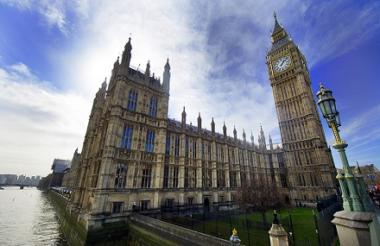The start of any new year is the time to reflect and plan for the ensuing year.
So, at the start of 2020 and with the prospects of Brexit and at least a five-year Conservative government, charity boards should take time to ask some fundamental questions about how these realities will affect them and how they should respond.
Prior to the general election, both myself and others were encouraging charities and their national bodies to engage with the campaign (though we did not advocate that they could or should ‘align’ with any political party). Now, with the election over, and whilst charities must obviously respect the election result, this does not mean that they must accept or acquiesce to government policy.
The Conservative manifesto was thin on specific policies. The subsequent Queen’s speech did not even mention homelessness and contained no serious plans relating directly to civil society and charities.
However, the size of the government majority in the House of Commons enables it to push through whatever it wishes to do - including going well beyond its election promises. Already there are calls for social insurance-based care services.
How will you hold the government to account?
The government is pledged to securing Brexit with a transition period no longer than the end of 2020 - which means that ‘no deal’ is very much back on the agenda – an outcome which the charity sector has always stated would have seriously harmful consequences. The sector needs to ‘up the volume’ on this potential outcome and argue strongly against the government allowing (or even orchestrating) such a result.
If the promised positive outcomes of Brexit are not realised (and this is looking increasingly likely), there could be serious consequences for trust in political process, public institutions and potentially for key public services. Charities should be considering how to respond should this be the case.
We have been promised a ‘One Nation’ government, which will, it is claimed, address the social and economic challenges in those places that elected Conservative MPs for the first time for many years (and in some cases, ever). Already the forecasts indicate that many of these same places will be adversely affected by Brexit.
Clearly then, local and national charities, and their representative bodies should now be planning on how they can and will hold the government to account on these promises.
Scepticism
That said, inevitably, there will be much scepticism within the charity sector (including this author) that given its parliamentary majority, this new government will in reality ever bring forward practical and progressive policies to: address inequality; tackle the structural causes of inequality and poverty; reform policies such as Universal Credit and other ‘welfare reforms’, which have caused misery and unfairness; invest in public services (other than the NHS) to adequate levels; or accelerate a radical programme on the climate emergency. This scepticism is compounded by the Conservative’s economic pledges, which the respected Institute for Fiscal Studies says will ‘bake austerity in’.
The social and economic reality is bleak: ten years of austerity; 4 million children living in poverty; 135,000 children homeless this Christmas; in-work poverty and precarious employment growing; hospital waiting lists rising; too much of the public realm in decay; and so much more.
We can do better
The UK is one of the wealthiest economies in the world. We can do better – and the charity sector must repeat this loudly and often.
Indeed, as Duncan Shrubsole has so powerfully argued, charities should recognise all of the above realities and plan for the next five years.
I agree with much of what Duncan has written but I do also urge charities actively to adopt some specific strategies.
14 key questions
I believe that there fourteen key questions that any charities concerned with welfare, rights and fairness through their services including advocacy should be asking at board level:
- When the state steps away or underfunds public services, do we step in and substitute charitable money and volunteering for public expenditure and properly paid public employees?
- What balance should we strike between practical and policy interventions?
- How can we best seek to hold the government to account and seek to influence its agenda?
- How can we offer advice and support the government implement its policies without compromising our values or selling those we work with short; and what are our ‘red lines’?
- What arguments should we deploy against austerity, for public investment and fair taxation – if any?
- How can we build alliances with local government to support communities to promote social cohesion and community resilience?
- How can we build alliances with other civil society groups including faith groups and trade unions?
- How can we support informal social action which is likely to be vital in defending, providing voice for and offering practical support to communities; and in opposing damaging national policies?
- Should we campaign for government to tackle structural economic and social inequalities and their causes – or only talk about the symptoms; and if so how?
- What role can we as charities play in pressing for urgent and effective action to tackle the climate emergency?
- How do we persuade government and the Charity Commission that campaigning, and advocacy are critical roles for modern charities; and to accept that we will not be silenced?
- What is the best way of seeking to move the government and other public bodies on from a marketised approach to delivering public services – and thus away from competitive tendering to relational partnering?
- What if any role should charities play in promoting a fairer, more co-operative and socially inclusive economy; and in influencing macro-economic policy?
- What should we demand and expect of our national representative bodies and our local infrastructure bodies in respect to this agenda? I recognise that individual charities will need to find their own answers. However, I also believe that the national sector bodies must show leadership on these matters, and that they too must be ‘held to account’ in doing so by their members.
I intend (as, I hope, will others) to return to these issues and to advance my thinking over the next few months and beyond. We all have a duty to find a way forward and, one can but hope (for we owe it to all our beneficiaries and communities), to reach an agreed sector consensus.
John Tizard is an independent strategic advisor and commentator. He is currently a trustee and charity chair and chair of a CIC.
Related articles













